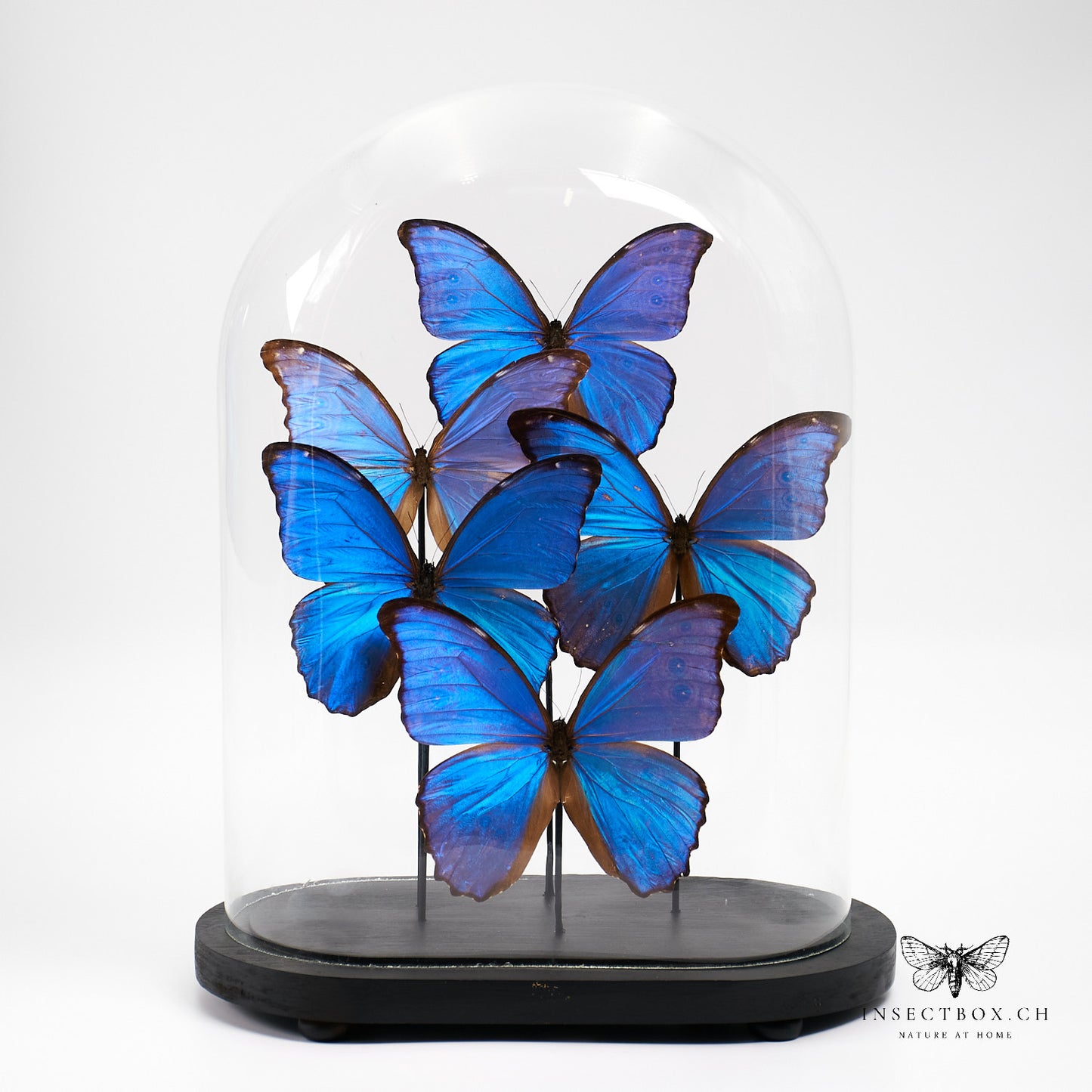insectbox.ch
Antique glass bell with dissected butterflies - Morpho didius
Antique glass bell with dissected butterflies - Morpho didius
Couldn't load pickup availability
Antique glass bell with dissected butterflies - Morpho didius
Description:
The blue morpho butterfly (Morpho didius), also known as the sky butterfly, is an impressive butterfly from the family Nymphalidae. It is characterized by its bright blue wing tops, whereby the blue is caused by the interference of light on the tree-like scales of the wings and not by pigments. The wingspan of these butterflies is around 95 to 120 millimeters. In females the blue is not as intense as in males. The leading edges of the forewings and the outer edges of the forewing and hindwing are black. The undersides of the wings are brown with wavy white stripes and there are yellow-edged eyespots on them, four of which are on the hindwing and three on the forewing.
Happen:
These fascinating butterflies are found near forest edges, forest paths and on plantations in the tropical rainforests of Mexico, Central America, northern South America, Trinidad and other West Indian islands. Their distribution area extends to an altitude of around 1,400 meters above sea level.
Way of life:
The butterflies feed on fermenting fruits and fly particularly in open areas of the forest along rivers, roads and paths. Their flight is extremely fast and powerful. The females fly especially around midday and lay their eggs on the top of the leaves of their food plants. The hatched caterpillars are spotted yellow and red and can reach a length of up to 90 millimeters. Their head capsules are hairy. Development from egg to adult butterfly takes about four months (average 115 days).
Food of the caterpillars:
The caterpillars feed on Fabales, especially plants of the genera Mucuna, Lonchocarpus and Pterocarpus.
Status:
Normally this species is common, but it is threatened by habitat loss and increasing collecting activity.
shares


